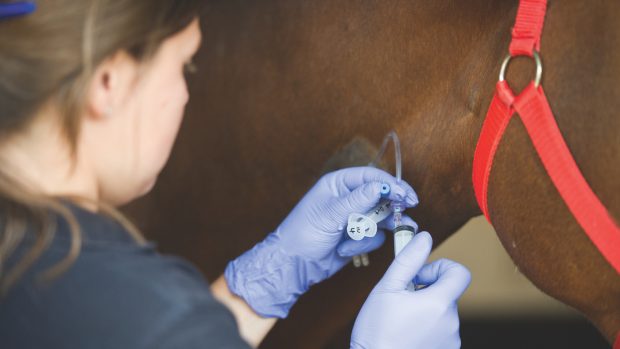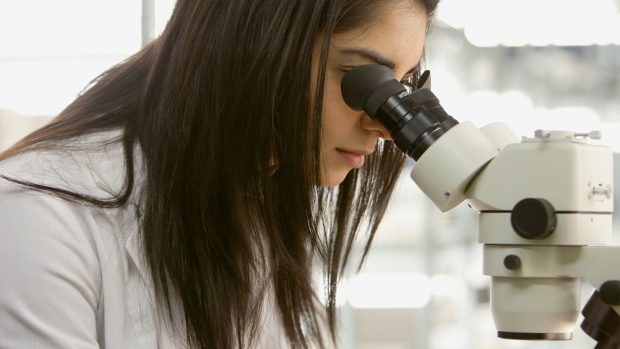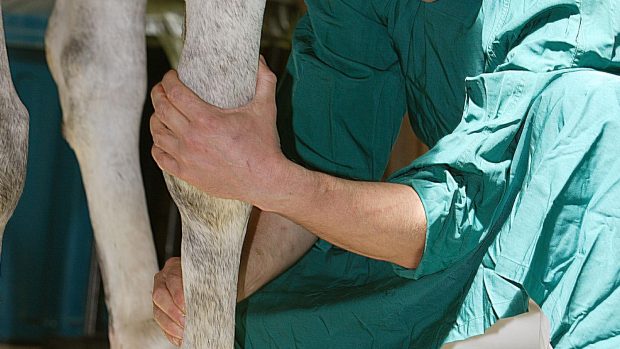Two key clinicians from the Animal Health Trust (AHT) have been made redundant, leaving a question mark over its future in equine studies.
Last week, Dr David Marlin, head of physiology, and Lesley Young, head of cardiology, lost their jobs — two of only three senior clinicians in the centre for equine studies. Jenny Mumford, the director of science, was also made redundant, the third of eight staff lost last week by the Newmarket charity.
The AHT has refused to comment or announce the redundancies, but Young told H&H: “Ironically, the announcement came on the 10th anniversary of my arrival at the AHT: I thought the personnel officer was calling me for a long-service award, but they had something altogether different up their sleeve. We were told our redundancies resulted from complete closure of our areas.”
The AHT has been an integral part of the bloodstock and wider equine industry since 1942, but news that it had been hit by a financial crisis was leaked last month.
A charity that relies on grants from the equine industry, consultation fees and donations, the AHT is suffering from a shortfall in donations and legacies and is performing unfunded research to the tune of £1.8 million. It is also believed to be suffering historical problems surrounding a deficit in its pension fund of about £3.5m.
The British Equestrian Federation (BEF) liaises closely with the AHT, and John McEwen, BEF director of equine sports science and medicine, explained that he heard of the redundancies via “snippets in the press and on the grapevine”.
“Until we actually know exactly what’s happening, who is being made redundant and where they will be working in future, it’s difficult to plan. This is a critical time for us and I find it upsetting,” he said.
Dr Marlin is an international expert on the effects of heat stress on performance horses. He was heavily involved in research at the 1996 Atlanta Olympics, at Athens last year and is leading research into the Beijing Olympics in 2008.
Lesley Young has been leading research into equine cardiology problems and was recently consulted by the national press following the death of Best Mate.
“Dr Marlin has been advising us over heat stress issues for Hong Kong and research of that nature is absolutely critical — it has huge welfare implications,” continued McEwen. “Lesley Young has done a lot of cardiology work, which is critical for performance, not just to the disciplines but to the whole industry.”
The loss of Young and Marlin has left Sue Dyson, head of clinical orthopaedics at the equine centre, as the only senior equine clinician at the AHT. She was not informed nor consulted on the redundancies.
“Although I specialise in orthopaedics, a horse doesn’t necessarily just have an orthopaedic problem — sometimes, you need advice from a specialist in another discipline,” said Dyson. “I can find that support from a local equine practice, but it’s not the same as having somebody with whom you’re working daily.
“I suspect the AHT’s financial problems are long-standing and it is unfortunate that steps weren’t taken earlier to address the problems, in consultation with the senior staff. It would have been helpful if everyone in the AHT had been better informed so that we all understood why these decisions have been made.”
The future of the AHT and its equine research is uncertain. At last week’s BEVA AGM, delegates were questioning the direction of the AHT without a director of science and the loss of such key figures.
McEwen commented: “Its standing depends on cutting-edge research and, without that, one sometimes would question the value of the AHT.”
But Lesley Barwise-Munro, former British Equine Veterinary Association president, warned: “The AHT serves an important function and has some unique facilities that need to be retained. We’ve got to be careful not to be short-sighted, and it’s important for the horse industry to rally to support the bits we need for our industry.”
SUBSCRIBE TO HORSE & HOUND AND SAVE Enjoy all the latest equestrian news and competition reports delivered straight to your door every week. To subscribe for just £1.43 a copy click here >>
|



